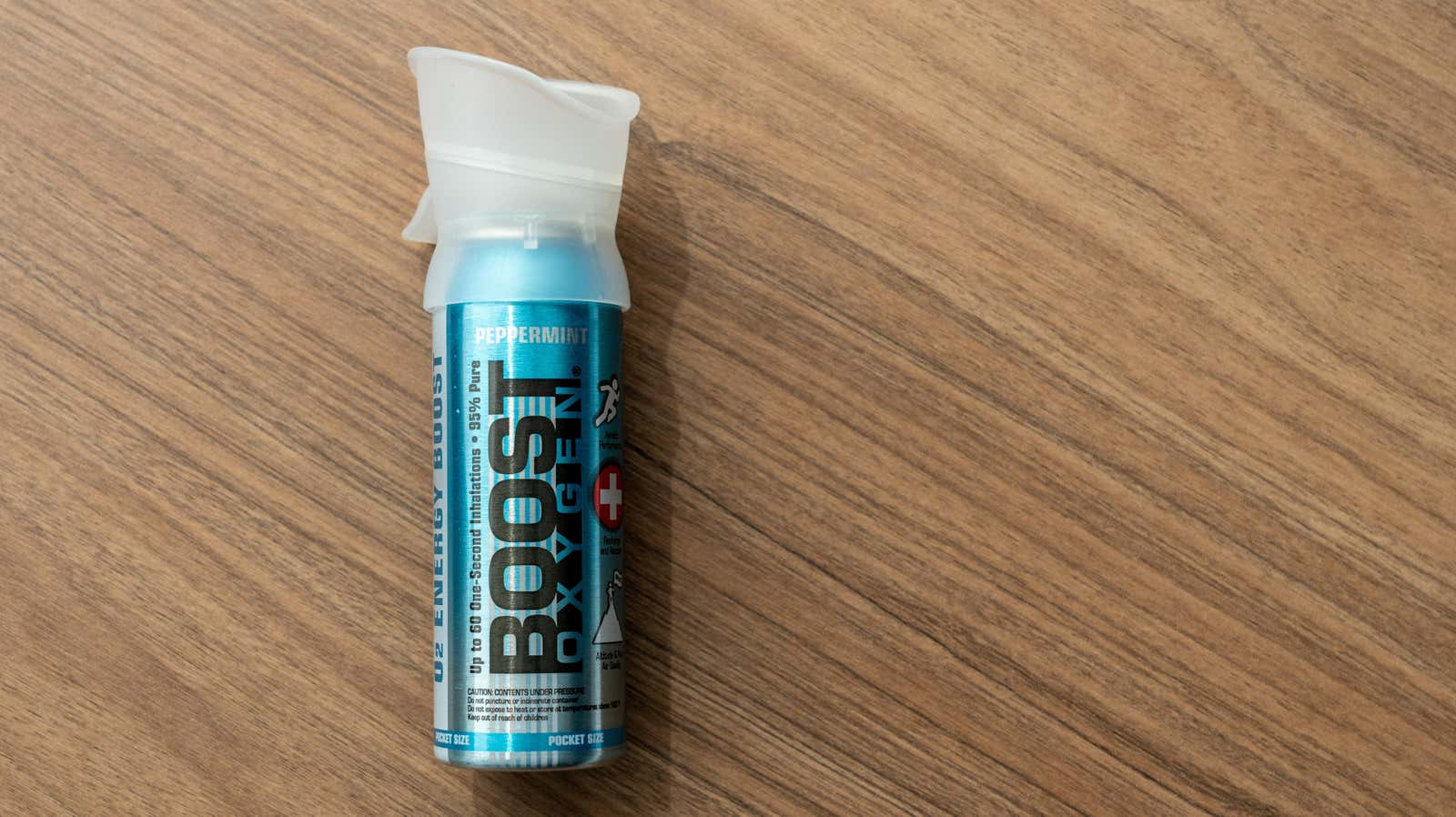Does Supplemental Oxygen Really Help You Recover Faster After a Workout?

In my experience, anyone who competes in athletics will happily eat, drink, or wear anything that will ethically improve their performance. Runners eat disgusting gels to boost their energy and spray themselves with lubricants to reduce chafing. And we’ve all seen footballers sucking up oxygen on the sidelines of games. So it’s no surprise that you can now actually buy a canister of pure oxygen from your local CVS and other stores. The claims associated with these air canisters are enticing: inhaling pure oxygen will boost your stamina and energy, reduce recovery time, relieve stress, and even help with a hangover.
The internet is full of rave reviews from people claiming that O2 cans provide it all. But we live in superficial times, populated by “influencers” who are more than happy to advertise a product, and the psychology of the placebo effect is powerful. To find out if an oxygen tank will make your workouts, stressful days and hangovers easier, we turn to our old friend: science.
Does supplemental oxygen help you recover faster?
The first thing to know about all this is that if you are healthy, your body will almost always get the amount of oxygen you need. The air we breathe contains approximately 21% oxygen , and at rest, your red blood cells will be somewhere in the range of 95 to 99% oxygen saturation just by inhaling this substance. Because you can’t have more than 100% blood. oxygen saturation, most of us are fine just sitting on our asses and we don’t need fancy pure oxygen to get to those numbers.
The theory behind supplemental oxygen is that when you exert yourself, your body starts burning that oxygen, and blood oxygen levels drop. And it is true! That’s why you breathe harder when you’re doing something that requires effort to get more oxygen. So the idea that an oxygen tank can help you catch your breath and work harder and longer seems to be scanning.
Except that science has not found any evidence for this. Studies have shown that the use of supplemental oxygen does not improve performance or speed up recovery time in any significant way. NFL players think they can catch their breath a little faster thanks to the combination of an extremely strong circulatory system and a dose of pure O 2 , but in fact, it’s more likely that these multimillion-dollar lungs and hearts are the issue, not the extra gas.
All about the state
Here’s the key – if your body is 99% oxygenated to begin with, will it be able to use the extra oxygen you breathe in? Probably no.
What about improved mental acuity, hangover relief, and other claims about the benefits of supplemental oxygen? Mostly hot air. Hangovers, for example, are due to dehydration and your bad liver glowing red while it detoxifies your body, they have nothing to do with blood oxygen levels. And even if that were the case, the fact remains that even when you wake up with a hangover that feels like someone threw you off a tall building last night, you’re almost certainly at 95+% oxygen in your blood and won’t benefit. from more oxygen. .
The bottom line is that everything people claim supplemental oxygen can help with probably won’t help, for the simple reason that your body already has all the oxygen it needs.
One final note: Breathing in short bursts of pure oxygen is perfectly safe, so if you want to throw in a few dollars on a can of air and see what it does for you, go for it. However, breathing pure oxygen for any extended period of time (to be clear, we are talking about several hours) can be very, very harmful to you, leading to conditions with scary names like “shock lung”, so you should not just plug in canister of gasoline and spend all day sucking on it. In other words, don’t overdo it.